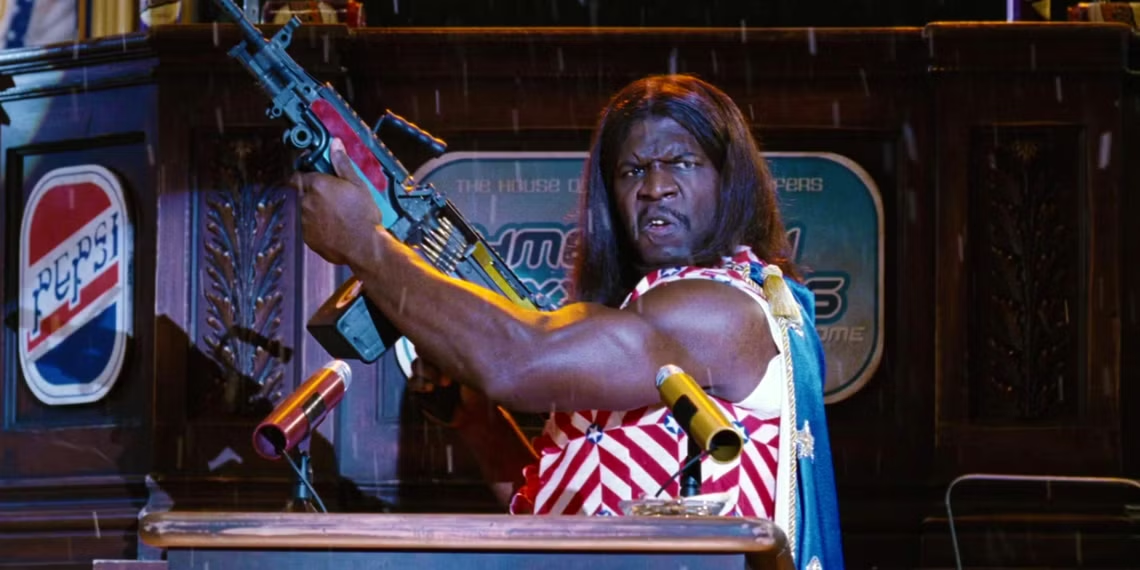With Donald Trump set to return to the White House in a few short weeks, journalists are already thinking out loud about how they’ll cover his second term. These reflections amount to a tacit admission that the methods of covering Trump’s first term can’t be repeated, even if professionalism keeps journalists from using phrases like “we screwed the pooch sideways” or “we dumped our credibility in a port-a-potty and then lit that port-a-potty on fire.” To be fair, it’s hard to know how to cover Trump, since he can’t seem to put on his socks in the morning without doing 10 to 12 things that would doom any other administration.
But journalists aren’t the only ones in need of introspection. My profession, comedy, should also be thinking about how we’re going to approach the next four years. With a few notable exceptions, we didn’t exactly cover ourselves in glory in Trump’s first term. I personally wrote a few bits that I now consider comedy abominations that should be locked away in a dank cellar. The sanctimonious outrage and focus on day-to-day shenanigans that characterized so much comedy during Trump’s first term arguably didn’t work very well, and it definitely won’t work this time around.
“Any joke that begins with the premise of ‘You won’t believe what Trump did today!’ is incorrect—I will believe it, because my sense of what’s possible has expanded.”
Believe it or not, there was a time when Trump material felt fresh and exciting. I remember working on the “Drumpf” piece for Last Week Tonight with John Oliver in early 2016, which—according to always-accurate internet chatter—“DISMANTLED” and “DESTROYED” the soon-to-be Republican nominee. There was a sense that we were working on something big and important. I now know that feeling was: 1) Hilariously wrong, and 2) Poisonous for comedy. Humor shouldn’t be self-righteous; no one walks out of a stand-up set and says, “I really liked the comic who scolded us!” The strangeness of the moment led comics at every level to imagine that we served some vital social function. But that sense was mostly overblown—if democracy could only be saved by the witticisms that I flung at six alcoholics at McZany’s Topless Joke Bunker, then democracy probably wasn’t worth saving in the first place.
The sense of “Isn’t this crazy?!?!” that pervaded so much comedy in the early Trump years won’t work today. And to the extent that it even worked then, that was only the case because Trump’s back-asswards stumble into the White House truly was unprecedented. (If, say, Bob Dole was ever recorded on the Access Hollywood bus talking to a D-minus celebrity about poontang, then I missed it.) But we’re now in our second decade of Trump the politician, so we need to adapt. We’ve seen him hawk sneakers and try to buy Greenland and be indifferent about his vice president being lynched. At this point, Trump could run over a leprechaun while driving that Willy Wonka car that burps foam and I wouldn’t bat an eye. Any joke that begins with the premise of “You won’t believe what Trump did today!” is incorrect—I will believe it, because my sense of what’s possible has expanded.

We also don’t need to react to every dumb thing Trump says. I’m embarrassed to admit, for example, that I spent an entire day in 2017 freaking out about his “calm before the storm” comment. WHAT DID IT MEAN? I wondered. Was some military action imminent? Had Seal Team Six finally hunted down America’s No. 1 enemy, Hillary Clinton? No, like “covfefe” before it, the comment turned out to be nothing about anything, a stray thought that got lost in the vast space between Trump’s last two functioning neurons and fell out of his mouth (or into a typo-riddled tweet). The actions of our former and future president are worth reacting to, but statements rarely are. His words aren’t moves in a game of eight-dimensional chess, and people who still try to find meaning in Trump’s ramblings remind me of John Nash trying to find an algorithm to explain the movement of pigeons: It’s an early sign of a diseased mind.
One of the first-term Trump jokes that I think really worked was John Mulaney’s “horse in a hospital” joke. If you missed it, here’s the premise:
Here’s how I try to look at it, and this is just me, this guy being the president … It’s like there’s a horse—loose in a hospital.
I think eventually everything’s going to be okay, but I have no idea what’s going to happen next. And neither do any of you, and neither do your parents, because there’s a horse loose in the hospital! It’s never happened before, no one knows what the horse is going to do next … least of all the horse! He’s never been in a hospital before, he’s as confused as you are.
There’s no experts. They try to find experts on the news. They’re like, “We’re joined now by a man that once saw a bird in the airport.” It’s like, get out of here with that s—t! We’ve all seen a bird in the airport. This is a horse. Loose. In a hospital.
I think one reason why this joke worked was that it was less about Trump and more about how we experienced a novel situation. The market for jokes that informed you about Trump probably dried up pretty fast; whatever amount of Trump information you required to form an opinion about him, you probably got that amount by spring of 2016. And any attempt to drop Trump knowledge on people after that had something of a “let me tell you about Jesus” vibe to it. Mulaney’s joke wasn’t a righteous missive that he nailed to the church door in Wittenberg; it was a drawn-out metaphor about the situation.
And here’s the situation now: The horse has been in the hospital for years. He’s head of thoracic medicine—there’s a wing named after him. He’s still a horse, and I would argue that a hospital is a bad place for him to be, but it’s no longer odd. Takes that might work in a second term include “how did we get here?” and “it’s probably bad that the president seems to have a laminated, irrevocable ‘get out of scandal free’ card.” But any sense of shock needs to be calibrated to the new baseline.
This is American politics now. That’s a deeply sick joke, but it’s our job as comedians to find a way to make it funny.






Please note that we at The Dispatch hold ourselves, our work, and our commenters to a higher standard than other places on the internet. We welcome comments that foster genuine debate or discussion—including comments critical of us or our work—but responses that include ad hominem attacks on fellow Dispatch members or are intended to stoke fear and anger may be moderated.
With your membership, you only have the ability to comment on The Morning Dispatch articles. Consider upgrading to join the conversation everywhere.